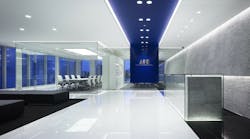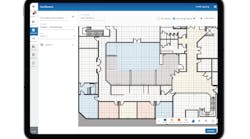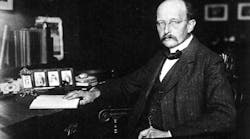Philips Lighting and Daintree Networks have agreed to work together on standards-based networked lighting systems for commercial buildings. The partners will rely on open standards, including the wireless ZigBee mesh network. This will allow building owners to install lighting systems that are interoperable with sensor, switch, luminaire and other products from multiple vendors in the near term and the future. Controls are key to driving additional energy savings beyond what can be achieved purely via the adoption of more-efficient sources such as LEDs. Philips and Daintree believe a standards-based approach can help accelerate solid-state lighting deployments.
In a project we covered in the latest issue of LEDs Magazine, Osram and the Lighting Research center have revealed a solid-state lighting project in a Paramount Pictures conference room that uses modular LED-based lighting tiles on the ceiling and wall. The tiles are powered by a DC voltage grid that is largely compatible with the standard that has been defined by the Emerge Alliance. The partners used energy-harvesting switches based on EnOcean Alliance technology, with no source of power, to wirelessly signal the lighting tiles.
Moving to luminaire and lamp development, electronics distributor Avnet has a new test lab called the Avnet LightLab that its customers can use to fully characterize their products in the optical, electrical, and thermal domains. The goal is faster time to market for the customers via access to expensive gear such as integrating spheres and a goniophotometer that many lighting companies don't have in house.
Also in the testing area, Underwriters Laboratories - or UL - announced the opening of its newest lighting-centric test lab in Allentown, Pennsylvania. UL will offer verification services at the facility for programs such as Energy Star, Lighting Facts, Design Lights Consortium, and Zhaga.
The US Department of Energy is reporting on another round of its Caliper testing program, this time focused on BR30 and R30 directional lamps commonly used in residential applications. The 13 LED lamps tested proved to be effective replacements for legacy incandescent and compact fluorescent lamps. Most of the LED lamps met Energy Star requirements and would deliver energy and maintenance savings over the legacy lamps. But the DOE also noted that the high up-front cost of the LED lamps remains an obstacle for residential customers.




